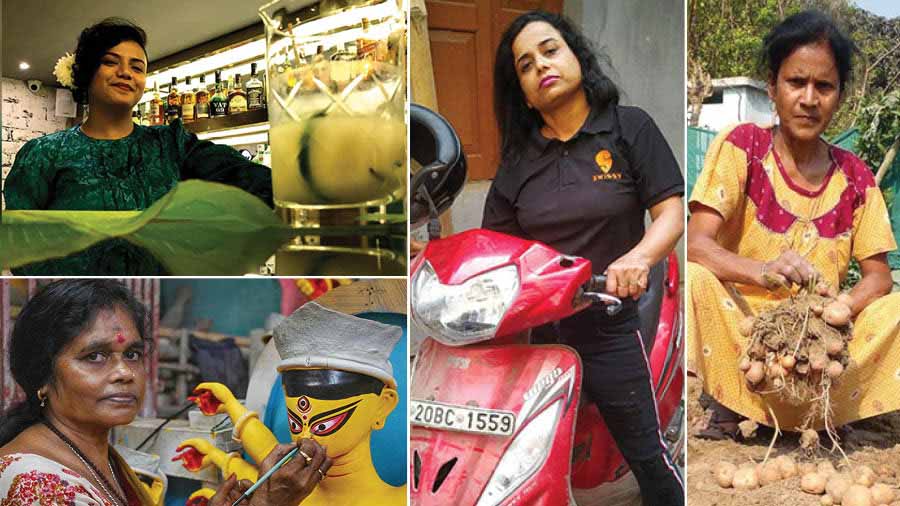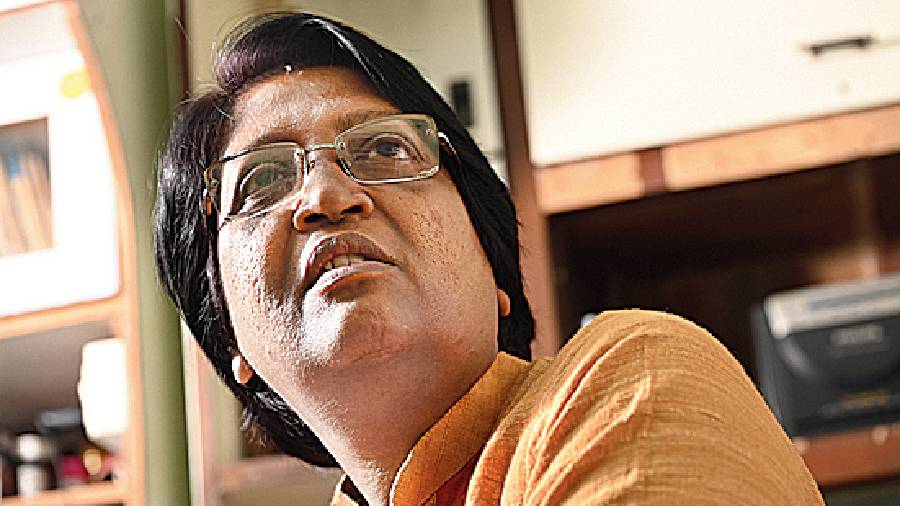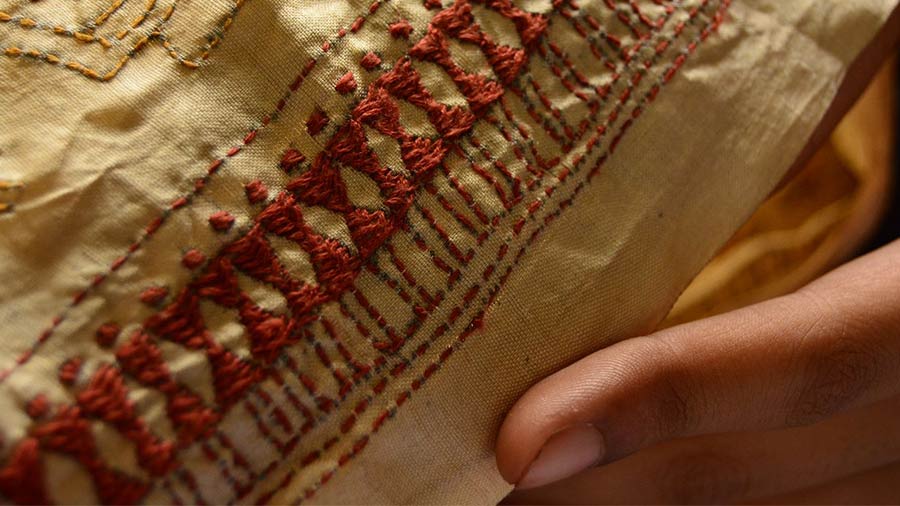They are strong, ready to think differently, push barriers and take up challenges. Being women professionals in ‘male-dominated’ fields is not easy but that hasn’t stopped them from breaking the glass ceiling and paving the path to success, all the while balancing their personal lives as well.
My Kolkata spoke to four women, who have embraced unconventional professions and yet are the best in what they do…
Ipsita Chakraborty, mixologist
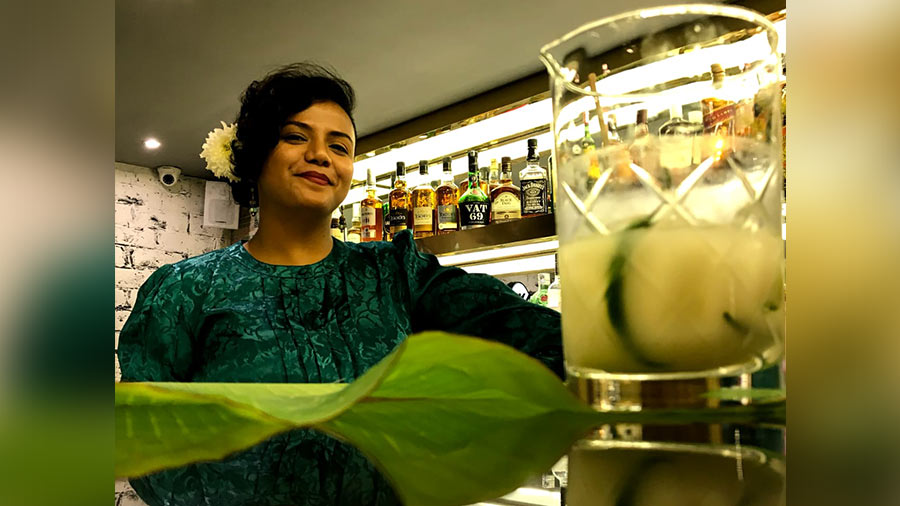
Ipsita Chakraborty
Chemistry was her favourite subject and a visit to a commercial bar in 2017 prompted her to put her knowledge to use in a different way.
“I’ve been in the kitchen from a very young age. Since we lived in Malaysia at that time, we had to learn how to cook dishes we craved. I got into the world of cocktails and mixology because I couldn’t find a drink I would order twice in the city, especially unsweetened cocktails, like a dirty martini, actually dirty!” said Ipsita, who has worked with brands like Greater Than, Bacardi, Budweiser Magnum Double Barrel and outlets like Skai and Waikiki, along with being a consultant mixologist for Chapter 2: Retro Dining.
Ipsita loves her Extra Dirty Martini and her current favourite is the Pandan Cucumber Gin Sour. “It has been fun so far. I absolutely love that there is always so much more to learn! Chemistry was my favourite subject — never imagined this would be the way I would take it forward! Of course, there are many many challenges but I can proudly say that I’ve managed to put a tiny dent in the system in the hope that many more people will now be able to have low calorie drinks — both alcoholic and non-alcoholic,” said the mixologist.
Asked about the challenges she faced, she said, “The biggest challenge is the money. I can earn far better as a freelance mixologist than being a beverage manager in most outlets. Service industry in Kolkata is very poorly compensated. Work hours, food habits and sleep are never certain, which can really affect one’s health. I would like to be able to help regulate the F&B labour laws in India someday!”
As one of the path-breaking mixologists in India, she wishes more women would join this industry if they have a knack for it. “Many shy away because there is still some taboo associated with alcohol, but the reality is that there are some excellent positions that go far beyond a bartender’s job. With the right mindset, passion, training and network, job scopes are very exciting! Not to forget, you’ll be able to travel the globe,” Ipsita smiled.
Binu Biswas, food delivery partner
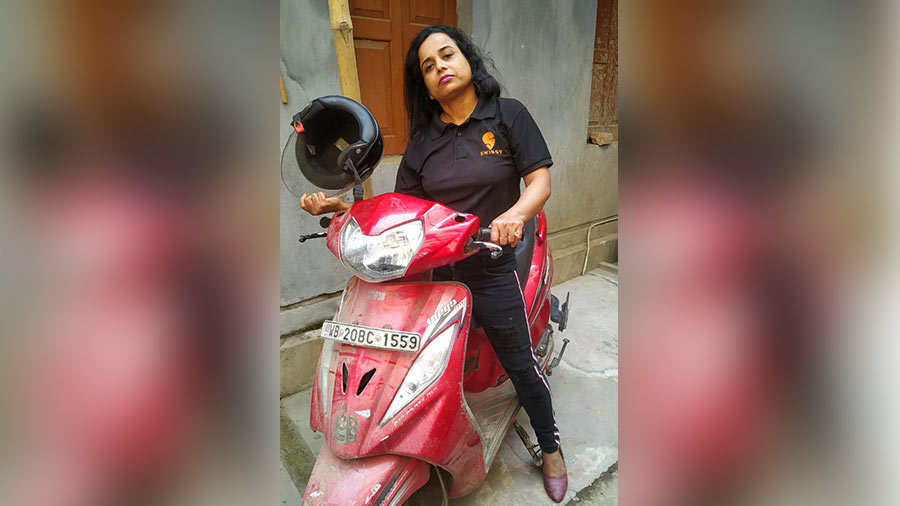
Binu Biswas
Next time you order your favourite food or some grocery you need on Swiggy, don’t be surprised if Binu Biswas rings the bell.
One of the few women warriors in the Swiggy food delivery team from Kolkata, Binu joined in 2018 and is still going strong. “Women are making waves in unconventional fields. But in the delivery sector, women agents were uncommon back in 2018. When I went to apply, I was asked if I could do the work. I told them I was ready to accept the challenge.”
The 42-year old traced her journey so far. “I completed my intermediate from Jharkhand and got married quite early in life. I have worked before, but here in Swiggy you have the freedom to work your way. This is what I really like. I work from 7.30am to 6.30pm and even longer during festivals.”
Talking about her customers’ reactions when they see a lady delivery partner, she said, “ I often hear ‘Oh wow! Here’s a lady delivery partner’. It makes me feel good. When people doubted if women could do this work, I had accepted the challenge and proved to them that women could. This makes me very happy.”
Mousumi Biswas, farmer
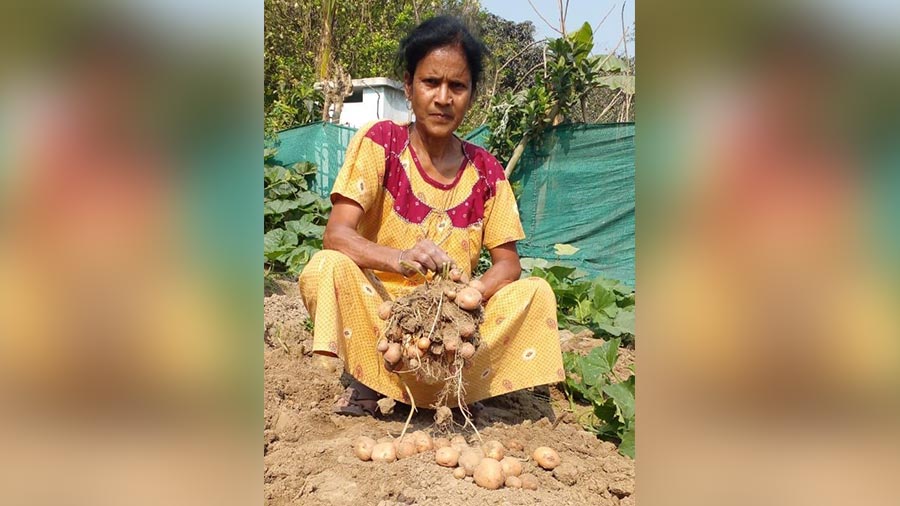
Mousumi Biswas
Mousumi Biswas wanted to be a teacher, but took up farming instead after her brother, the sole earning member of the family, passed away. The farmer from Murshidabad is known for her invention of the M Jamini rice grains that require less water, less pesticides and can resist treacherous storms.
Twenty-six years of hard work later, she still can’t forget the struggles of being a woman in a man’s occupation. “I was studying Bengali honours at University of Calcutta when my brother passed away, leaving behind a family of two kids, wife, ailing mother and an amnesiac sister. I knew the family was dependent on me and I had to step into my brother’s shoes. I picked up farming after reading books on agriculture and listening to the Krishi channel on radio. Neighbours and distant relatives never approved of it. They kept telling my mother to sell off the farming land and get me married. But I promised my mother I would do well.”
Mousumi attended several agricultural workshops and started growing vegetables, before gradually moving onto rice paddy.
Selling the produce in the market was tough too. She was often cheated but did not give up and kept gaining knowledge. After various experiments, trial and error, she invented a crossbred rice grain and named it M Jamini — ‘M’ for Mousumi and in Bengali, ‘Jamini’ means revolution. “Many people did not believe me because I was a woman. But now they know a woman can be a farmer or anything she wants to be!”
China Pal, idolmaker
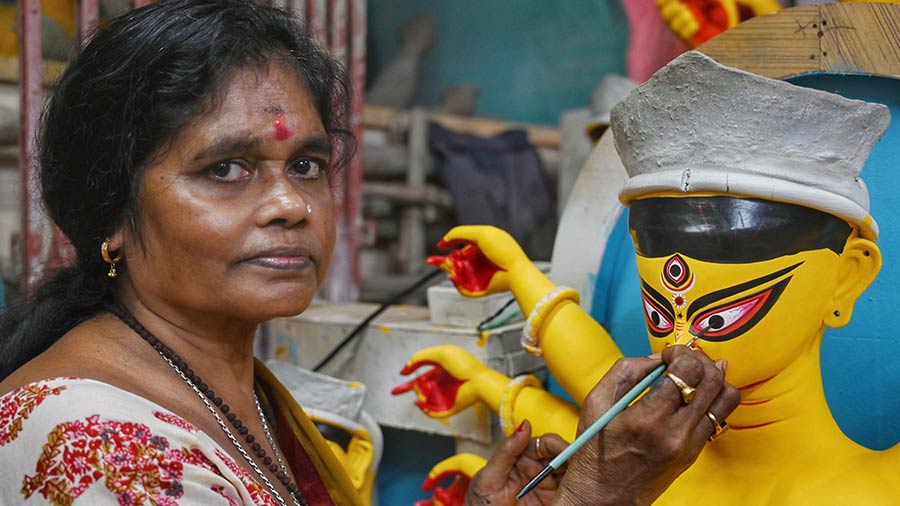
China Pal Amit Datta
She creates life out of clay. Heaps of clay take the shape of gods and goddesses inside China Pal’s nondescript little ‘studio’ at Kumartuli.
The journey wasn’t easy for China. In 1994, her father fell ill right before Durga Puja. That’s when she took all the responsibilities and completed the orders.
“I was always interested in idol-making and would spend hours in my father’s studio. But I was never encouraged by my father or brothers,” she rued.
After her father passed away, her brothers turned against her and broke all ties with her because idol-making for women was a taboo back then. “People in Kumartuli, especially men, frowned upon it. They would say things like ‘women should be in the kitchen’ or ‘women are unclean to make idols’,” recalled the idolmaker, who has several accolades to her credit.
But China Pal shrugs off all criticism. “If you work diligently, you will succeed. Whether you are a man or a woman doesn’t matter.”
